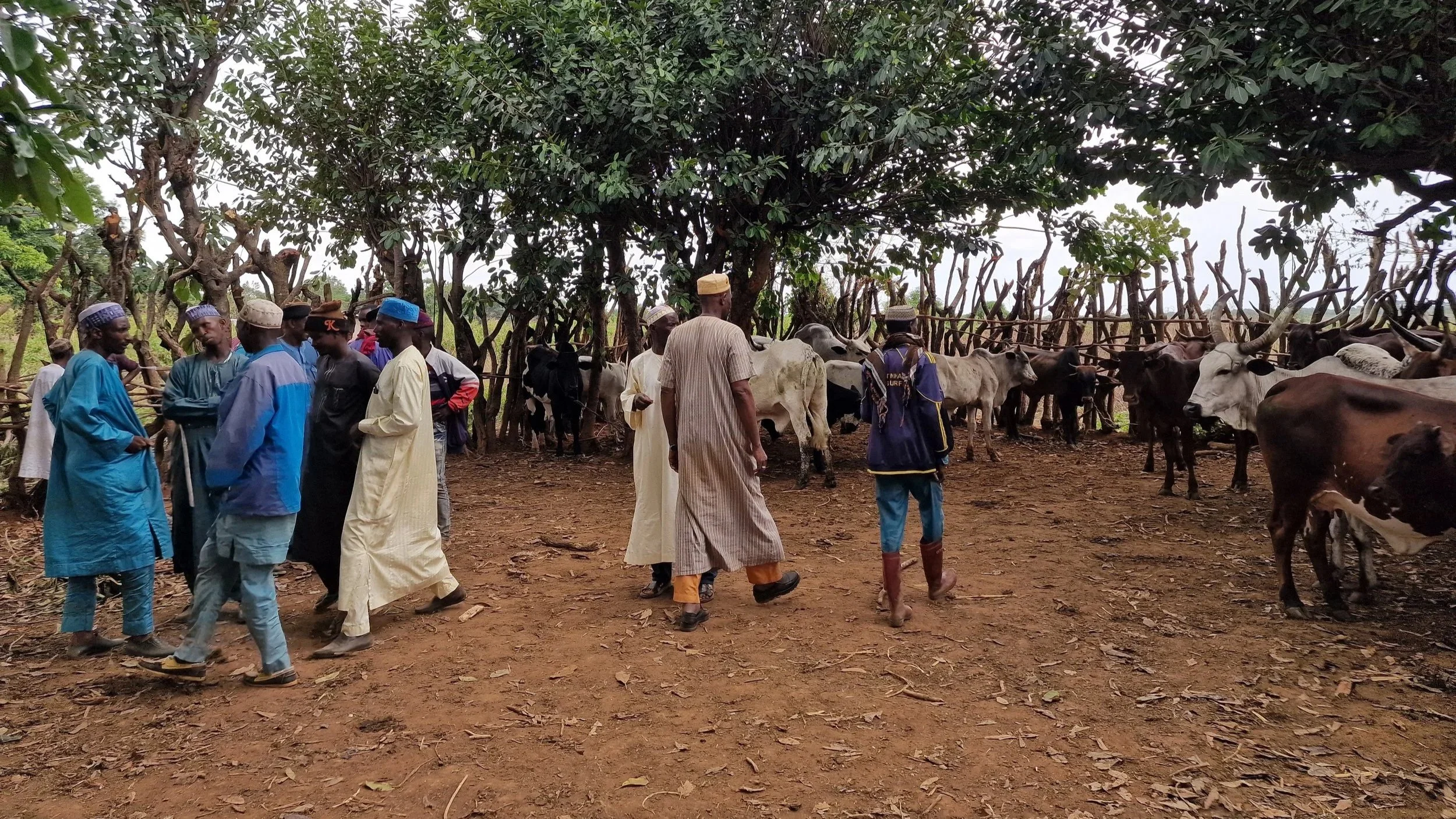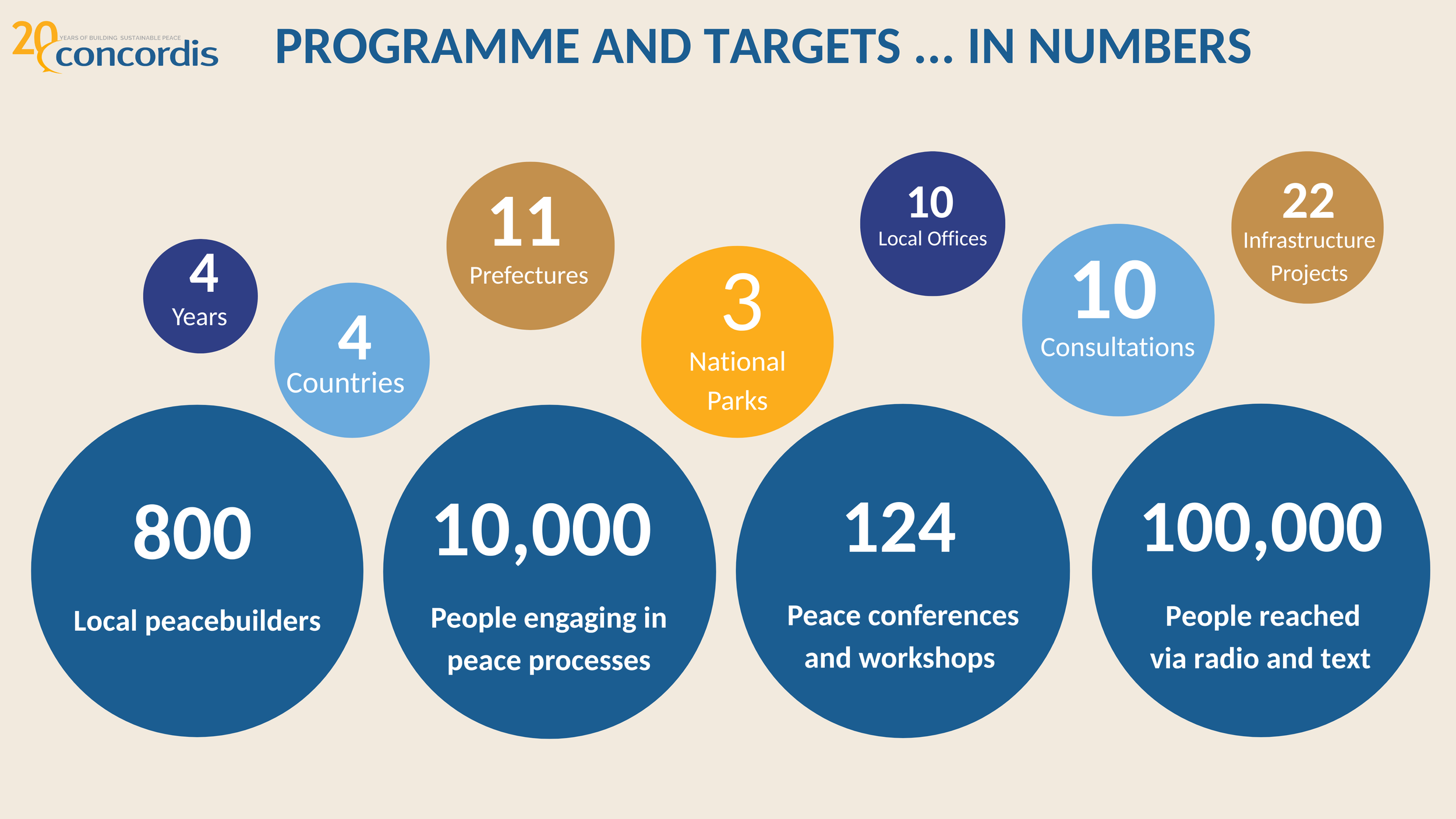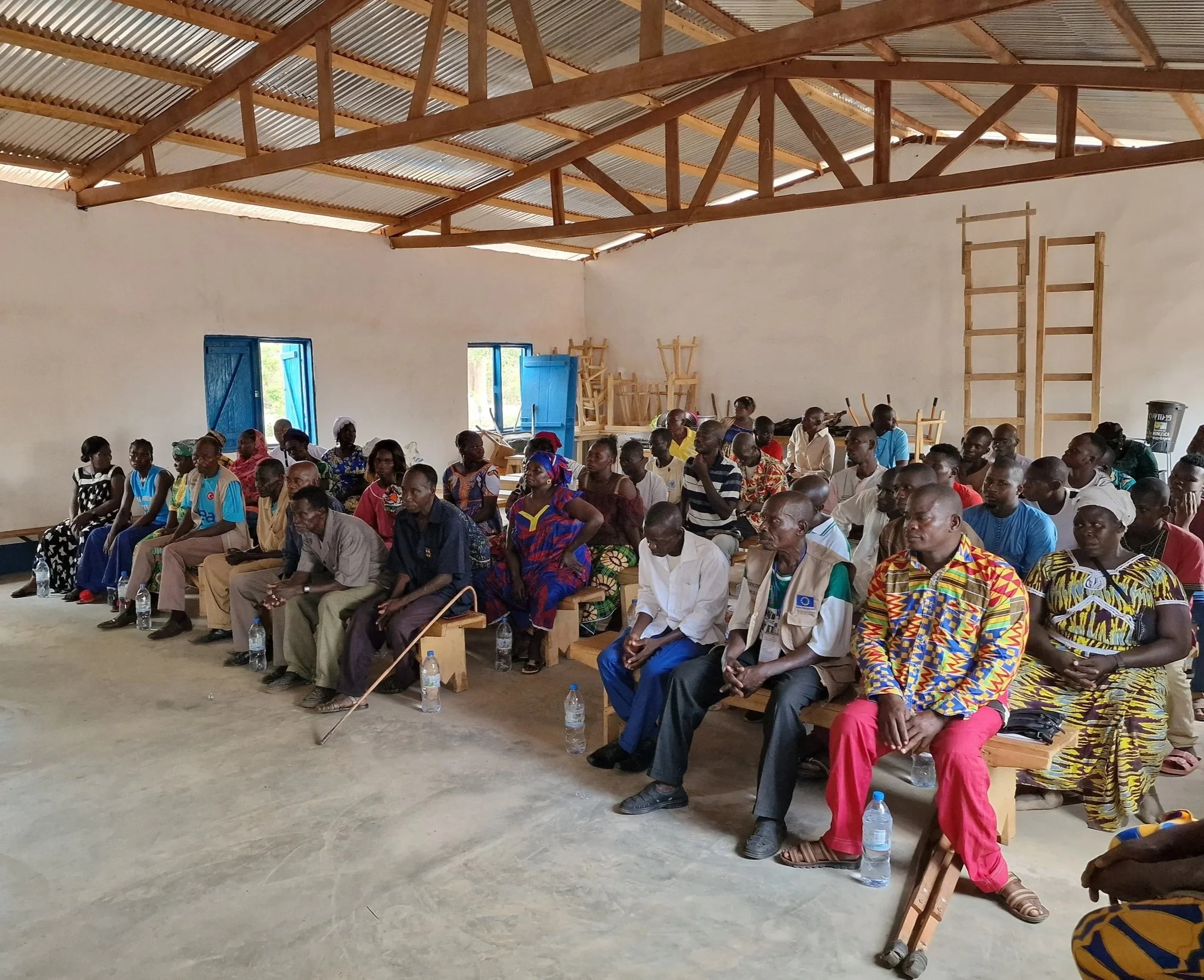
Central African Borderlands Programme
People in the Central African Region face many challenges.
The war in Sudan is truly impactful beyond it’s borders, with numerous nation states backing one side or the other, and the impact of the war being felt across the region.
Armed groups are prevalent, and their motives are complex. They are, in part, self-defence groups and the protectors of the people, yet they sometimes predate on the very people they were set up to protect. They are locked in conflict with the national armies and Russian mercenaries, with civilians caught in the crossfire.
Violent conflict occurs between cattle herders and settled farmers, but the reasons for that are complex and far from binary. Different groups of herders find themselves competing for grazing, cattle rustling is rife, and ancient ethnic rivalries are exploited for political, financial and military gain.
Conflict over natural resources, like water and land, is exacerbated by the effects of climate change, as unseasonal droughts and flooding alters patterns of cattle migration and crop-planting, bringing cattle into fields before the harvest.
The immense wealth in the region, gold, diamonds and uranium, as well as agricultural and livestock, too often profits people far away, and not the people living on the land. These riches create short-term incentives for armed aggression, but they can also generate long-term opportunities for peace and intercommunity trade.
Our Central Africa Borderlands Programme develops the peacebuilding work Concordis has been doing alongside local communities in CAR and Sudan for over ten years. The programme exists because we were invited by local representatives to expand into the borderlands of Chad and Cameroon.
Funded for at least four years, we will work to improve the resilience of cross-border communities: building resilience to conflict, resilient livelihoods and resilience to the effects of climate change, in the border regions of the Central African Republic (CAR), Chad, Cameroon and Sudan.
The Central Africa Borderlands Programme is about inclusivity, local ownership and impact.
We identify and address root causes of people’s grievances, transforming the drivers of conflict into incentives for peace.
We work with local authorities, traditional leaders and civil society to ensure that when conflict arises, as it inevitably will, people have the tools they need to manage that conflict peacefully.
We support those managing the National Parks as well as people farming or herding livestock in or around the Parks, to ensure people can pursue their livelihoods without coming into conflict with one another and without damaging the fragile ecosystem of these protected areas.
We promote good governance of the borderlands region, strengthening local and border security by promoting dialogue, conflict resolution and cross-border cooperation, both at the borders and through bilateral and multilateral agreements between nation states.
We are committed to listening and understanding, working alongside and facilitating, making peace locally-owned, inclusive and sustainable.
Supported by:
The European Union
In association with:
Centre for Humanitarian Dialogue
Cameroon, Central African Republic, Chad, Sudan
A CLOSER LOOK AT WHAT WE DO
To bring change for those who live where conflict is fought and felt in these borderland communities, we will be:
1. Running community consultations.
By talking to people from every group involved, we are helped to understand the needs and fears of different groups. We can identify root causes of conflict, see paths to effective conflict management and trusting relationships. We commit to listening to everyone and ensure the active participation of marginalised groups, including women, elders, youth, refugees, ethnic minorities and persons with disabilities.
2. Setting up Advisory Groups (AGs).
We identify individuals respected by their communities as influencers for peace already, bringing them together, training and supporting them to mediate resolutions to conflicts.
AGs also advise our conflict analyses, because they know the situation better than we do. They act as early warning networks, create local peacebuilding plans, respond to shocks and community tensions and facilitate conversations to find peaceful solutions.
AGs also play an important role in information sharing because they disseminate alerts of violent clashes or extreme climate events and messages about the agreements reached in peace conferences.
3. Bringing conflicting parties into dialogue.
Consultations and AG members raise the issues that need addressing. Workshops are held to work out ways to address the root causes of conflict and identify ways to transform it. Dialogue workshops involve local authorities, traditional leaders, local civil servants, society members and security actors selected by the AG members.
During dialogue workshops, participants may agree on multiple subjects like timing and taxation of cattle movement, arrangements around market activities, access to natural resources or infrastructure projects to ease conflict or support livelihoods.
4. Training managers and community users of protected areas, facilitating workshops for people in surrounding communities.
This is a three-way conflict situation, between cattle herders, settled farmers, both of whom may also hunt game, and those seeking to protect the fragile ecology of the park. As we are supporting peaceful management of the parks, we address the related issues raised in consultations by organising mediations, trainings, information sharing sessions and workshops to help park managers work in collaboration with the surrounding communities.
5. Facilitating cross-border agreements.
We will be building on the success of existing agreements negotiated by Concordis in the past, between local authorities in Chad and CAR.
The nature of conflict zones requires agility in response to rapidly changing contexts, so our approach varies according to local nuance, especially in Sudan which has been a war zone since April 2023.
CENTRAL AFRICAN BORDERLANDS PROGRAMME PARTNERS:
We are a dialogue organisation and we believe in enabling other organisations to collaborate well. The challenges in this region are complicated and need a joined up, multi-agency and multi-disciplinary approach.
We are working closely with:
Centre for Humanitarian Dialogue (HD) | Action Against Hunger (ACF) | African Parks (AP) | Central African Forests Commission (COMIFAC) | Congo Basin Forest Partnership (CBFP) | Danish Refugee Council (DRC) | Economic Commission for Livestock, Meat and Fisheries Resources (CEBEVIRHA) | Economic Community of Central African States (CEEAC) | German International Cooperation Society (GIZ) | International Committee of the Red Cross (ICRC) | International Rescue Committee (IRC) | Network of Central African Protected Areas (RAPAC) | Observatory of Central Africa Forests (OFAC) | Parcs de Noé | Première Urgence | Triangle Génération Humanitaire (TGH) | United Nations Food and Agriculture Organization (FAO) | United Nations International Organization for Migration (IOM) | United Nations Multidimensional Integrated Stabilization Mission in the Central African Republic (MINUSCA) | United Nations Office for the Coordination of Humanitarian Affairs (OCHA) | War Child | Wildlife Conservation Society (WCS) | World Bank (WB) | World Database on Protected Areas (WDPA).
Click the box to find out more about our country programmes:












